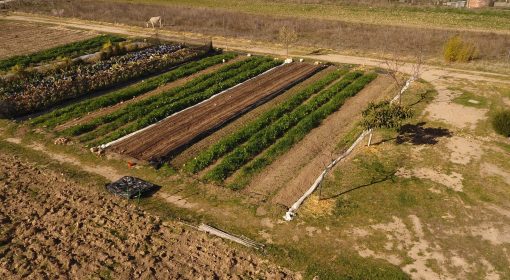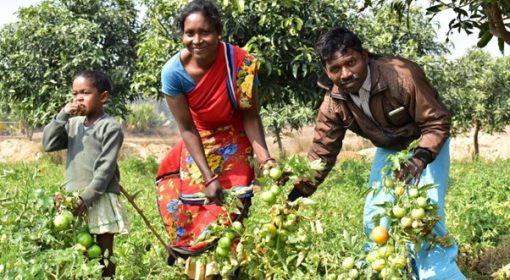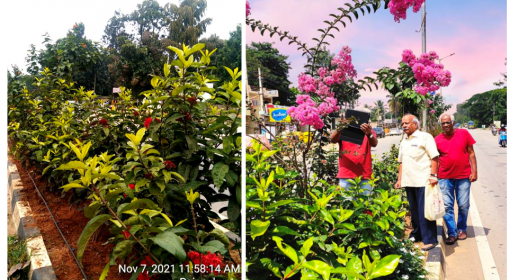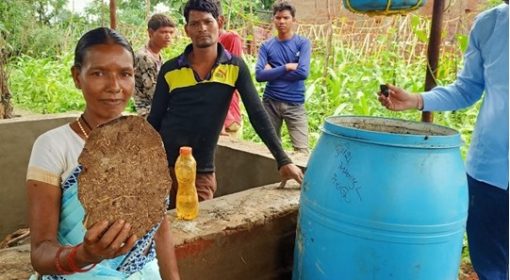posted by Ruben Borge
January 28, 2013
The Usambara Cooperative Union (UCU) in Tanzania is proud of their fair trade certified organic coffee. For more than forty years, returns from this crop allowed farmers to pay the bills of their children’s education. It has always been cultivated without chemical fertilizers or pesticides, but also without any fertilization. After four decades of continued nutrient extraction, the soils are exhausted. Production has dropped by 75% in the last ten years. The 2800 members of the Union are also experiencing a decrease in quality and price, and also increased incidence of plagues and diseases.
With the assistance of Agriterra, UCU got access to training. In November 2012, a small group of 21 UCU farmers was pre-selected to pioneer a revolutionary composting technology at their farms and later train their fellows. The technology has proven successful for more than 3 decades in the fields of South America.
The UCU farmers cannot afford commercial inputs for agriculture. This low-input requirement drives the project to use local , lowest-cost resources and to reuse all types of farm waste.
 The aim of the project is to restore the basic functions of natural soils. The approach adopted starts by re-mineralization of the soils and plants. Re-mineralization increments organic matter due to more crop rests and green manures. Organic matter enhances microbiological activity, leading to regeneration of the natural soil functions, i.e. (1) nutrient retention and (2) water retention, drainage and life supporting system at various levels.
The aim of the project is to restore the basic functions of natural soils. The approach adopted starts by re-mineralization of the soils and plants. Re-mineralization increments organic matter due to more crop rests and green manures. Organic matter enhances microbiological activity, leading to regeneration of the natural soil functions, i.e. (1) nutrient retention and (2) water retention, drainage and life supporting system at various levels.
The proximity of volcanic soils from Kilimanjaro gave the opportunity to use the best rock dust to re-mineralize the soils. Also farmers tried the local rock dust at the local quarry.
The easiest way to apply rock dust is to cover the soil with a fine layer (1-2ton/ha). Rain brings the minerals to the roots. Rock dust releases its nutrients slowly, and the benefits are spread over several years. Soil organisms will turn the minerals into plant-available nutrients through a process that takes 1-4 years. But UCU farmers can’t wait that long. Incorporating rock dust to the compost shows promising results in improving soil fertility while little (and only local) resources are used. Beneficial microorganisms in a compost turn rock dust into available plant nutrients, in only thirty days. Still, nutrient absorption through the roots can be slower than farmers would like.
 UCU farmers were trained to mount low tech bio-digesters, enriched with rock dust to make foliar fertilizers at a cost that everyone can afford. Spraying bio- fertilizers to plant leaves produces shortest term returns to the farmers.
UCU farmers were trained to mount low tech bio-digesters, enriched with rock dust to make foliar fertilizers at a cost that everyone can afford. Spraying bio- fertilizers to plant leaves produces shortest term returns to the farmers.
It is well known that microbiology is many times more effective in turning minerals into nutrients than weathering. With proper training, applied microbiology can be easily and safely used by farmers. For centuries, it has been mastered by farmers to make cheese, bread, wine or compost, among other products.
American farmers carried out tests on several crops including corn, potato, paprika, coffee, cotton. Also, fruit trees like avocado or mango have been grown in re-mineralized soils with using rock dust and microbiological processes. The results shows increase in production and quality; decrease in attacks from insects and diseases and a severe reduction of production costs.
These farmer experiences show how they can produce organic and increase net profit by utilising low inputs (even competing with conventional production systems) and make their land more fertile each year. The self-supply for safe agricultural inputs is a powerful tool that can ensure income of many and help build better land for their children.
Related:
Video: Remineralization in Rural Brazil
Video: Rockdust and Biochar as a Strategy for Carbon Sequestration
Article: Remineralise Now
{jcomments on}



